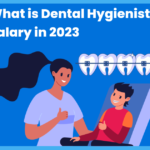Are You For Prerequisites for Dental Hygienist? Dental hygiene is an rewarding and in-demand profession focused on maintaining oral health while preventing dental problems, with certain prerequisites necessary for entering this career field.
To enter this career field successfully. In this article, we will outline the necessary qualifications and prerequisites necessary for becoming a dental hygienist.
Introduction Of Prerequisites for Dental Hygienist
Dental Hygienists play an essential part in maintaining oral health and aiding dentists to deliver premium dental care to their patients.
These professionals perform various services, such as cleaning teeth, diagnosing oral health issues and providing information on proper dental hygiene techniques.
Before embarking on your career journey, it is necessary to fulfill certain requirements that will ensure its successful development.
Importance of Dental Hygienists in Your Community
Dental hygienists are integral members of any successful dental team. Working closely alongside dentists to assist their patients achieve optimal oral health is their role.
Hygienists play an essential role in the prevention and treatment of oral disease through cleanings, removal of plaque and tartar accumulation, as well as identification of early warning signs associated with dental issues.
They play this role through performing cleanings to remove plaque and tartar build up as well as early signs of dental issues – contributing both directly and indirectly.
Expertise in teaching patients oral hygiene practices provides individuals with the power to maintain healthier smiles.
Educational Requirements
In order to become a dental hygienist, certain educational requirements must be fulfilled; these prerequisites provide the framework for an enjoyable dental hygiene career.
High School Diploma or Equivalent
Beginning your career as a dental hygienist requires earning your high school diploma or equivalent qualification. A good foundation in biology, chemistry and mathematics provides essential building blocks necessary for understanding dental concepts.
Join an Accredited
Dental Hygiene Program Once they graduate high school, prospective dental hygienists need to enroll in an approved dental hygiene program.
These programs, typically offered through community colleges or universities, lead to either an associate’s or bachelor’s degree in dental hygiene. Their curriculum typically incorporates both classroom instruction and clinical training experiences.
Licensing and Certifications
After graduating from a dental hygiene program, it’s imperative that you obtain a license in your state in order to practice as a dental hygienist.
Licensing requirements differ between states but often consist of passing written and clinical examinations prior to receiving your license.
Some states also mandate CPR certification; to understand your state-specific licensing requirements and meet them fully.
Core Skills and Abilities
Being an effective dental hygienist requires possessing certain core abilities that enable you to provide quality dental hygiene care while engaging with patients effectively.
Communication Skills
Dental Hygienists need strong communication skills as part of their job description, since you will regularly interact with patients while explaining procedures and providing oral hygiene instructions.
Effective communication ensures patients understand their dental needs and feel at ease throughout their appointment.
Attention to Detail
Attention to detail is of utmost importance in dental hygiene. As a hygienist, your job involves inspecting patients’ mouths, identifying dental issues, and documenting this data for their dentists. Paying close attention even to minor details ensures thorough and precise care is delivered.
Manual Dexterity
Dental hygiene often necessitates working in tight spaces using various dental instruments; having good manual dexterity allows you to manipulate these tools precisely, providing efficient yet gentle care to patients.
Critical Thinking
Dental Hygienists face various oral health challenges and must possess strong critical thinking abilities in order to create suitable treatment plans for their clients.
Assessing patients, analyzing X-rays, and making informed decisions all require strong critical thinking abilities.
Knowledge Base
To become a successful dental hygienist, one needs a firm grasp on various dental-related subjects.
Oral Anatomy and Physiology
Understanding the structure and function of the oral cavity is vital in providing effective dental care, with familiarity of its anatomy and physiology helping hygienists identify abnormalities as they assess overall oral health status.
Dental Procedures and Instruments
Dental hygienists need an in-depth knowledge of dental procedures and instruments used during treatments in order to assist dentists seamlessly, guaranteeing efficient and safe procedures.
Oral Health Evaluations (OHEs).
Dental hygienists play an essential role in assessing oral health conditions by conducting careful assessments, which enable them to detect potential issues and create tailor-made treatment plans for them.
Infection Control
Whilst keeping patients and staff safe is of the utmost importance in dentistry, dental hygienists must also adhere to infection control measures, including sterilization methods, use of PPE properly, and adherance with universal precautions.
Clinical Experience
Dental Hygienists also gain practical experience through clinical training sessions.
Hands-On Training
Dental hygiene programs often include hands-on training wherein students practice dental procedures under the instruction of experienced faculty members, providing students with invaluable opportunities to build clinical expertise while increasing confidence when providing patient care services.
This hands-on experience helps develop clinical proficiency while increasing confidence for providing exceptional patient care services.
Internship or Externship?
Dental hygiene programs often require students to participate in externships at dental clinics as part of the curriculum, providing opportunities to apply knowledge gained during class in real world environments while further honing skills learned at school.
This experience gives the chance to apply knowledge to real situations while honing existing ones as they continue honing skills over time.
Job Prospect and Salary
Dental Hygienists should enjoy a bright job outlook due to increasing emphasis on preventative oral healthcare services; demand is expected to surge over the coming years for them.
According to projections by the Bureau of Labor Statistics, employment of dental hygienists is projected to experience an upward trajectory between 2020-2030 of 6%; faster than any occupation overall.
Recent data indicated the median annual wage for dental hygienists in the US to be $77,090; however, actual salaries can differ depending on factors like experience, location and work setting.
Conclusion
Becoming a dental hygienist involves fulfilling specific prerequisites and developing various skills and knowledge necessary.
From enrolling in an accredited dental hygiene program and gaining clinical experience to engaging in professional development activities and furthering your credentials for this rewarding career path. Each step counts!
By fulfilling all requirements and honing your skills over time, becoming a dental hygienist will prove immensely rewarding and allow you to have an impactful effect on people’s oral health.


